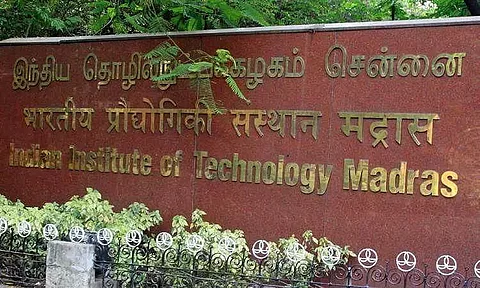
- Home
- Live Blog
- Breaking News
- Top Headlines
- Cities
- NE News
- Sentinel Media
- Sports
- Education
- Jobs

Chennai: Researchers at the Indian Institute of Technology (IIT) Madras have developed an Antimicrobial Wrapping Material that is said to store perishable items like fruits, vegetables, meat and cottage cheese for as long as 10 days without the need for a refrigerator.
The anti-bacterial and biodegradable food wrapping is also found to degrade in 21 days making it an alternative to plastic wrappers and reduce plastic waste.
Prof Mukesh Doble, and research scholar Puja Kumari, department of biotechnology, who led the research said that he and his team are now looking for funds to scale up the process and to conduct further tests and compare the product with commercial offerings.
The wrappers are made with polymeric blends containing starch, polyvinyl alcohol, and cyclic beta glycans (CBG), and the composition was optimized to achieve a variant with a smooth texture, flexibility, uniform thickness, and good clarity. The polymers used are approved by the United States Food and Drug Administration (FDA).
According to the researcher, the antibacterial agent that is used on the packaging is also approved by the food authority for consumption. It includes eugenol, chlorogenic acid, betanin, curcumin, and gallic acid, among others. These compounds are used regularly in Indian food and are known to possess antibacterial, antioxidant, and many other aid bioactivities. The compound is either immobilized on the surface or coated or mixed with the polymer before preparation.
According to reports, every year around 300 million tonnes of plastic waste is produced. As per waste management experts, only 9% of all plastic waste gets recycled and about 12% has been incinerated. Some reports suggest that an estimated 600 million persons fall ill after eating contaminated food and over four lakh persons die every year.
Prof Doble also spoke on how this material will help combat the solid waste pollution, ''the wrapping material degrades at various environmental conditions. The rate of degradation varies from 4 to 98% in 21 days. The wrapping material degraded rapidly in moist conditions when compared to dry ones. Hence, our wrapper is eco-friendly and can play a major role in plastic waste reduction."